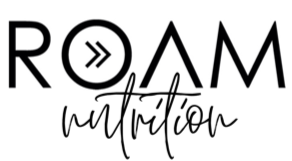New Year, New Diet
Hi Friends,
I hope everyone had a festive holiday season even though it may have looked a little different than previous years!
What could also look a little different is the approach to New Year’s resolutions… Let me ask you some questions: does your New Year’s resolution include a new diet? Does the diet have a name? Does the diet tell you to restrict a food or food group? Does it exclude certain foods as if they are forbidden?
I mean don’t get me wrong, I am ALL for the New Year, New YOU buuuuuut at the end of the day, whether it be Dec 31st or Jan 1st, you are still you and you are still human. Don’t set yourself up for failure with rules, restrictions, and diet resolutions.
Before you right me off-because, maybe you are convinced the new diet is just what the doctor ordered. Let’s talk about three things to remember on your new year, new you journey:

- Food is not the enemy.
- Are you happy?
- Diet magic doesn’t exist.
Food is not the enemy.
Let’s be honest, we aren’t taught much about “nutrition” in school, college, and most of the information people feed themselves comes from what they hear from others, tv, social media, and/or the news. As a whole, the foundational principles around nutrition aren’t well-known, which creates discrepancies around the food we eat. We hear carbs are bad, sugar is deathly, fats will make you fat, protein is holy, and coffee is heaven’s nectar.

Okay, maybe coffee is heaven’s nectar. But seriously, hearing a variety of information from different sources creates this confusion on what a person can actually eat. People then begin to start to develop this belief that food is the enemy. I am here to tell you that food isn’t the enemy. It’s to keep you alive. As simple as that. Of course, anything of excess isn’t ideal. For example, a diet that consists of muffins and donuts doesn’t exactly fuel your cells with nutrients; however, neither does a diet that only consists of bland chicken, rice and broccoli. A variety of foods creates the balance your body needs for life. Lastly, consider this: maybe you didn’t fail the diet, the diet failed you?
Are you happy?

Are you happy at meal time or does meal time stress you out? Creating a grocery list or meal planning too stressful? Does the new diet consist of foods you’ve never heard of? And now you have to cook it? If you are experiencing stress around meal time(s) because of a new diet, is it worth it or does it influence you to give up?
Trying new foods takes time to experience. It shouldn’t be rushed. It takes about 3 weeks to change your taste buds so give yourself some patience. Meal times shouldn’t be stressful and you should be able to have fun experiencing new foods. Be open to trying 1-2 foods per week compared to an overhaul to your whole pantry. Give your taste buds time to adjust.
Side note: if you are restricting your calories to a specific (small) amount, you could be stressed around meal times because you’re hangry. Yes, that’s right, you’re living in a state of hangry. Restricting calories can lead to other detrimental effects besides the waste line. Restricting calories to very small amounts (1200 calories) can actually lead to psychological adverse effects.
Diet magic doesn't exist.
In my experience, people want to be told what to do for quick results. Results he or she wanted yesterday. I hate to break it to you but there are no magical pills, diets, supplements, and so on to get you to the perfect place you want to get to. You have do to the work. I am willing to bet you work hard in life, working hard isn’t uncommon to you, so why would it be perceived that changing your diet or exercise habits would happen over night?

Changing your diet or exercise habits is a process not an end point. If you are determined to change your diet, start slow. Not exactly what you want to hear but research shows that “diets” are short term, which may give you short term happiness; however, can lead to weight cycling. In the short explanation, weight cycling can lead to more weight gain in the end. Meaning you weigh more than when you started the first diet! You know the one that guaranteed you’d would lose weight.
Ask yourself these questions: did you make a resolution last year that was diet focused? Did you stick to it? Did you lose weight? Do you weigh more now than you did then?
Resolutions are great- I love setting new goals for the year. However, if you’re ready to kick the diet focused resolutions, here is a great article to come up with non-diet resolutions-Yes, it is from last year, it still applies. If you are still focused on including a new diet in your resolutions, try making it specifically focused on the process. For example, if your goal is to lose weight, ask yourself “how is my vegetable intake,” “am I skipping meals,” or “am I eating the same foods each day”? How can you approach the resolution in small steps compared to trying to do it all at once. Take it day by day, meal by meal, and step by step.


